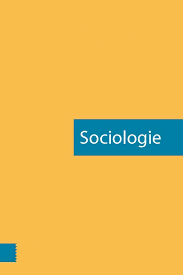Abstract
Social capital theory predicts a reproduction of inequality due to access and use of social capital. In this contribution, we study the distribution of social capital and its consequences for social inequality in the Netherlands. To this end, we assess the extent to which social capital is dependent on the individual’s education, socioeconomic background and meeting opportunities. Next, we investigate the effect of social capital on two types of inequality: socioeconomic inequality (income and supervisory position) and well-being (satisfaction with financial situation and subjective health). The idea of social capital leads directly to general hypotheses, including: those who have more social capital achieve more goals, basically in all areas of life, including the two mentioned above. We test this hypothesis with data from the Survey on the Social Networks of the Dutch, a representative panel study on personal networks of over 600 Dutch residents. Social capital is measured with the position generator. Lagged regression analyses indicate that individuals with a higher level of education, a higher socioeconomic background and men generally have more social capital. Also, living in a rural area and participation in voluntary associations are positively associated with social capital, in particular with the number of positions accessed. Next, we show that social capital increases the likelihood of being in a supervisory position and having a higher income. In contrast to our hypothesis, we find that individuals with more social capital are less satisfied with their financial situation; although the effects are not strong. The effects of social capital on subjective health are mixed and dependent on the indicator of social capital.
How to Cite:
Volker, B., Mollenhorst, G. & Flap, H., (2015) “Reproductie van ongelijkheid als gevolg van de verdeling en opbrengsten van sociaal kapitaal?”, Sociologie 11(3-4), 402–423. doi: https://doi.org/10.5117/Sociologie/157433142015011003005
Downloads:
Download PDF
View PDF
165 Views
38 Downloads
Published on
2015-10-20
Peer Reviewed


